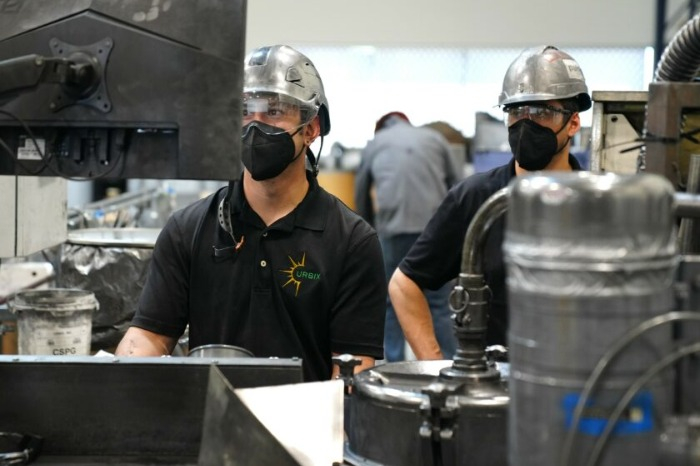Batteries
SK On, graphite processor Urbix to jointly produce anode materials
The Korean EV battery maker will consider using Urbix’s anode materials for its battery production in the US
By Jan 19, 2023 (Gmt+09:00)
2
Min read
Most Read
LG Chem to sell water filter business to Glenwood PE for $692 million


Kyobo Life poised to buy Japan’s SBI Group-owned savings bank


KT&G eyes overseas M&A after rejecting activist fund's offer


StockX in merger talks with Naver’s online reseller Kream


Mirae Asset to be named Korea Post’s core real estate fund operator



South Korea's SK On Co. and US graphite processor Urbix Inc. have signed an agreement to jointly develop high-performance anode materials, Korea's leading electric vehicle battery maker said on Jan. 19.
The two parties will apply the anode materials, which use Urbix's graphites, to the EV batteries that SK On is developing.
The term for joint R&D is two years and can be extended under the companies' agreement. Upon the result of the cooperation, SK On will consider supplying Urbix's anode materials to its battery plants in the US.
The anode is one of four key components of lithium-ion batteries along with the cathode, the electrolyte and the separator. It determines the battery life, energy density and charging speed. Graphite is currently used as a main anode material in lithium-ion batteries.
Founded in 2014, Urbix purifies graphite in an environmentally conscious manner. The company is planning to manufacture 28,500 tons of anode materials every year from 2025, including at the Arizona-based facilities under construction that aim for 1,000 tons of annual production capacity.
The cooperation with Uxbix will improve SK On's environmental, social and governance (ESG) management as the US firm's graphite processing method recycles 70% of chemicals, without using hydrofluoric acid and hydrogen chloride in refinement, the Korean battery maker said.
According to a report from International Energy Agency (IEA) last year, battery supply chains are concentrated around China. The country produces three-quarters of all lithium-ion batteries and is home to 70% the production capacity for cathode and 85% for anode.
In order to make its battery products eligible for Washington's EV tax credits, SK On is grappling with securing key battery materials from the US or its free trade partners.
SK On, a unit of Korea's No. 2 conglomerate SK Group, also inked deals for the stable procurement of battery materials last year. In November 2022, the company signed an agreement to purchase lithium hydroxide, a key battery component, from Chilean chemical firm SQM SA for five years from 2023.
Last October, it signed a long-term contract to procure lithium from Australian miner Lake Resources NL. As part of the deal, SK On also agreed to acquire a 10% stake in Lake Resources via a third-party rights offering by the end of June 2023.
In September of the last year, the Korean battery producer inked a memorandum of understanding (MOU) for the stable supply of lithium with Australia's Global Lithium Resources Ltd. SK On said it will procure spodumene, from which lithium hydroxide can be extracted, for the long term from mines that Global Lithium is operating and developing, although the Korean firm didn't disclose a specific timeframe.
Write to Hyung-Kyu Kim at khk@hankyung.com
Jihyun Kim edited this article.
More to Read
-
 BatteriesSK On-Ford Motor EV battery joint venture breaks ground in Kentucky
BatteriesSK On-Ford Motor EV battery joint venture breaks ground in KentuckyDec 06, 2022 (Gmt+09:00)
3 Min read -
 BatteriesKorea's SK On scraps $3.2 bn Turkey EV battery factory plan
BatteriesKorea's SK On scraps $3.2 bn Turkey EV battery factory planJan 09, 2023 (Gmt+09:00)
2 Min read -
 Rights offeringsSK Innovation to inject $1.6 bn into SK On's rights offering
Rights offeringsSK Innovation to inject $1.6 bn into SK On's rights offeringDec 22, 2022 (Gmt+09:00)
1 Min read -

-
 BatteriesSK On, EcoPro, China’s GEM to build battery materials plant in Indonesia
BatteriesSK On, EcoPro, China’s GEM to build battery materials plant in IndonesiaNov 25, 2022 (Gmt+09:00)
1 Min read
Comment 0
LOG IN


